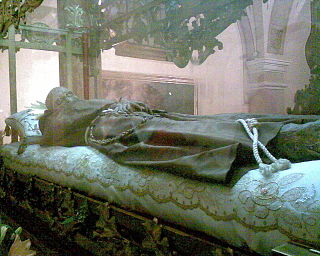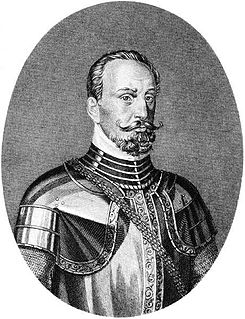 W
WBlaž Baromić was a Croatian printer, calligrapher, founder of the Senj printing press in 1494, the second oldest Croatian printing press. He is also known for his special typographic set known as Baromić technique of refracted ligatures, unique among incunabulas.
 W
WPetar Berislavić, a member of the Berislavići Trogirski noble family, was the ban (viceroy) of Croatia from 1513 to 1520 and also bishop of Veszprém.
 W
WGiorgio Giulio Clovio or Juraj Julije Klović was a Croatian illuminator, miniaturist, and painter who was mostly active in Renaissance Italy. He is considered the greatest illuminator of the Italian High Renaissance, and arguably the last very notable artist in the long tradition of the illuminated manuscript, before some modern revivals.
 W
WBeatrice de Frangepan was a Croatian noblewoman, a member of the House of Frankopan that lived in the Kingdom of Croatia in personal union with Hungary. By marriage she was heiress of Hunyad Castle and Margravine of Brandenburg-Ansbach.
 W
WBernardin Frankopan (1453–1529) was a Croatian nobleman and diplomat, a member of the influential Frankopan noble family of Croatia. As one of the wealthiest and most distinguished aristocrats in the kingdom in his day, he had one of the leading roles in mounting defences of Croatian statehood against the Ottoman expansion.
 W
WChristoph Frankopan was a Croatian count from the noble House of Frankopan. As a supporter of King John I of Hungary during the succession crisis between John Zápolya and Ferdinand Habsburg, he was named the ban of Croatia in 1526, and died in battle fighting alongside supporters of Zápolya.
 W
WJuraj III Frankopan was a Croatian nobleman, a member of the Slunj branch of the Frankopan noble family, very powerful and influential in the Croatian Kingdom. He was proprietor of many estates and castles, among which Slunj Castle and Cetin Castle. He is best known for organizing and hosting the assembly of the Croatian Parliament in the Cetin Castle by the end of 1526, that followed a succession crisis in Croatia and Hungary caused by the death of King Louis II, which resulted in the election of Ferdinand I of Habsburg, the Archduke of Austria, as King of Croatia.
 W
WNikola IV Frankopan was a Croatian nobleman and the Ban of Croatia and Dalmatia from 1426 to 1432.
 W
WLawrence of Ilok was a Croatian-Hungarian nobleman, a member of the Iločki noble family, very wealthy and powerful in the Kingdom of Hungary-Croatia. He held the title "Voivode (Duke) of Ilok" and Voivode of Bosnia, and was during his life Ban of Macsó (1477–1492), Ban of Belgrade (1511–1513), member of the Royal Chamber Council and judge royal (1517–1524).
 W
WJakov of Zadar is a blessed of the Roman Catholic Church, Franciscan monk and patron of the Italian town of Bitetto.
 W
WBaron Nikola Jurišić was a Croatian nobleman, soldier, and diplomat.
 W
WBartholomew of Krbava was a Croatian manuscript illuminator, calligrapher and scribe. Several richly illuminated codexes are authored by and ascribed to him and his scriptorium, most notably the Berlin missal (1402), Beram missal and Roč missal (1421).
 W
WFrancesco Laurana, also known as Francesco de la Vrana was a Dalmatian sculptor and medallist. He is considered both a Croatian and an Italian sculptor. Though born in the territory of the Republic of Venice, he spent his mature career at the other end of Italy, moving between Naples and Sicily, and Urbino, and finally in southern France, where he died.
 W
WGeorge Martinuzzi, O.S.P., was a Croatian nobleman, Pauline monk and Hungarian statesman who supported King John Zápolya and his son, King John Sigismund Zápolya. He was Bishop of Nagyvárad, Archbishop of Esztergom and a cardinal.
 W
WMarko Marulić Splićanin, in Latin Marcus Marulus Spalatensis and Italian Marco Marulo, was a Croatian poet and Renaissance humanist. He coined the term "psychology".
 W
WNicholas of Ilok was Ban of Croatia, Slavonia, Dalmatia and Macsó, Voivode of Transylvania and titular King of Bosnia from 1471 until his death.
 W
WJanus Pannonius was a Croat-Hungarian Latinist, poet, diplomat and Bishop of Pécs. He was the most significant poet of the Renaissance in the Kingdom of Hungary and one of the better-known figures of Humanist poetry in Europe.
 W
WJohn Vitéz de Zredna was a Hungarian and Croat humanist, diplomat, Latinist, mathematician, astrologist and astronomer. He served as Archbishop of Esztergom from 1465 until his death.
 W
WNikola III Zrinski was a Croatian nobleman, a member of the Zrinski noble family, influential in the Kingdom of Croatia.